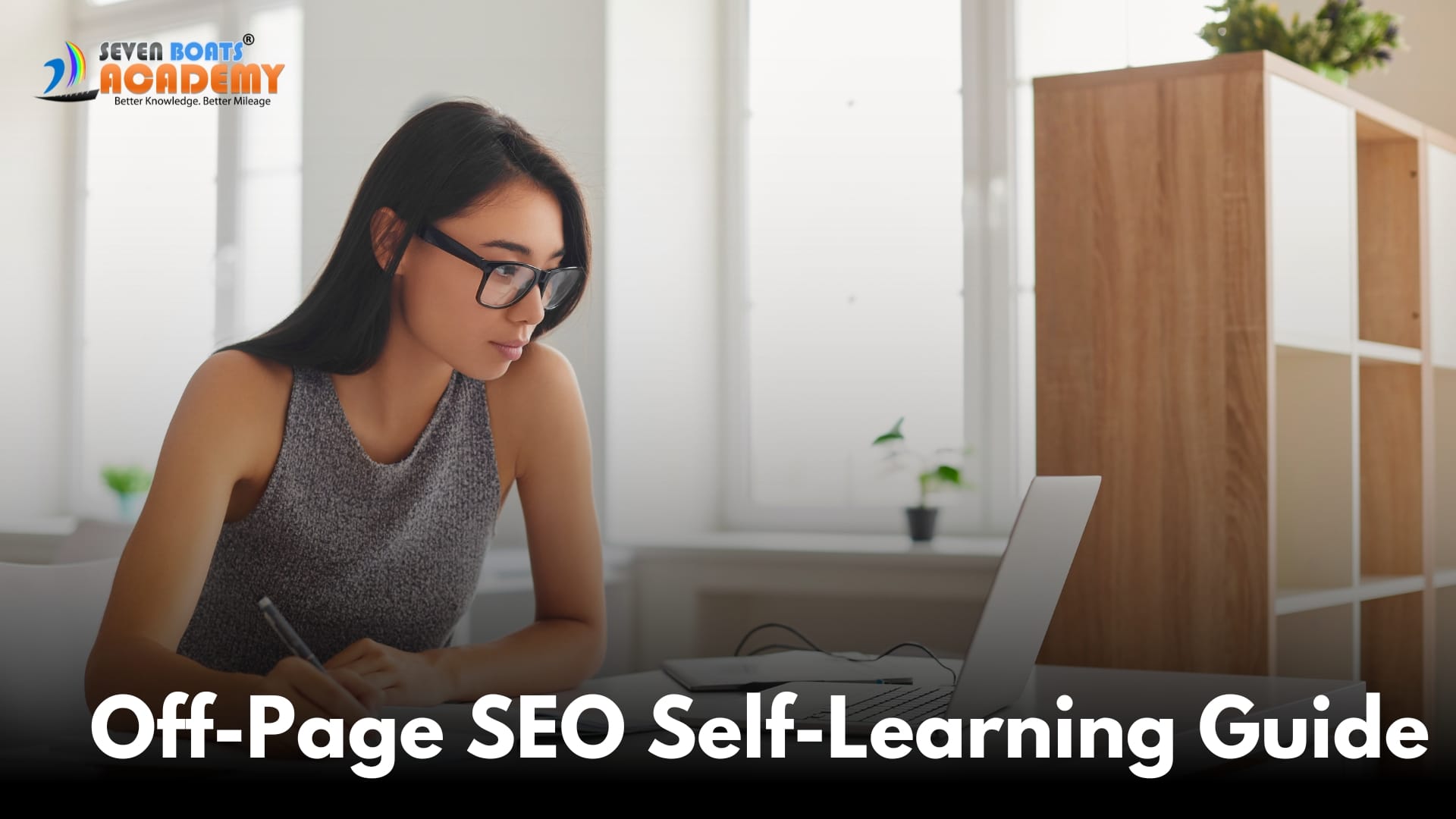
If on-page SEO is about perfecting your website, off-page SEO is about building its reputation across the web. It’s the strategy of getting other sites to talk about you, link to you, and trust your brand. Off-page SEO can seem tricky at first, but with the right mindset and steps, you can learn it on your own. Ready? Let’s dive in.
What Is Off-Page SEO, and Why Is It Important?
Off-page SEO refers to actions taken outside your website to improve its ranking. This mostly involves gaining backlinks (links from other websites to yours), but it also includes social signals, reviews, and brand mentions.
Why does it matter? Search engines like Google see backlinks as votes of confidence. The more quality votes your site gets, the more trustworthy and authoritative it appears, which boosts your rankings.
Where Should You Begin With Off-Page SEO?
Starting can feel overwhelming, but here’s how to break it down:
- Understand the Basics of Backlinks
- Not all backlinks are equal. Quality beats quantity. A single link from a reputable site like Forbes is better than 100 links from spammy blogs.
- Analyze Your Current Backlink Profile
- Use tools like Ahrefs, SEMrush, or Moz to see which sites are already linking to you. Look for strengths, weaknesses, and opportunities.
- Research Your Competitors
- Check the backlinks of your top competitors. What are they doing that you’re not? Tools like Ahrefs’ “Site Explorer” can help you see their strategy.
What Are the Main Strategies for Off-Page SEO?
Here are the core techniques to focus on:
1. Building Quality Backlinks
Why it matters: Backlinks are the backbone of off-page SEO. Search engines see them as endorsements of your content.
How to do it:
- Guest Blogging: Write articles for other reputable websites in your niche. Include a link back to your site in the author bio or content.
- Broken Link Building: Find broken links on other websites and suggest replacing them with your content.
- Create Link-Worthy Content: Publish ultimate guides, research studies, or infographics that others want to reference.
- Outreach: Reach out to bloggers, influencers, and journalists in your industry. Politely ask if they’d consider linking to your content.
2. Social Media Marketing
Why it matters: Social signals (likes, shares, and comments) indirectly affect your SEO by increasing brand visibility and driving traffic.
How to do it:
- Share your content regularly on platforms like Facebook, Twitter, LinkedIn, and Instagram.
- Engage with your audience through comments, DMs, and discussions.
- Partner with influencers to amplify your content.
3. Local SEO and Citations
Why it matters: For local businesses, citations (mentions of your business on local directories) improve visibility in local search results.
How to do it:
- Ensure your business is listed on directories like Google Business Profile, Yelp, and Bing Places.
- Keep your NAP (Name, Address, Phone number) consistent across all listings.
- Encourage satisfied customers to leave reviews on Google and other platforms.
4. Building Relationships
Why it matters: Relationships with others in your industry can lead to collaborations, backlinks, and traffic.
How to do it:
- Network with bloggers and industry experts through events, LinkedIn, or Twitter.
- Participate in relevant online forums and communities. Provide value, and your reputation will grow.
5. Brand Mentions
Why it matters: Even if a site doesn’t link to you, a brand mention can signal authority and trustworthiness.
How to do it:
- Use tools like Google Alerts or Brand24 to monitor mentions of your brand.
- If someone mentions your brand but doesn’t link to your site, politely ask them to add a link.
How Do You Avoid Bad Off-Page SEO Practices?
Not all off-page tactics are good for your website. Here’s what to steer clear of:
- Buying Backlinks: It’s tempting but risky. Paid links often come from spammy sites and can lead to penalties.
- Using Link Farms: These are networks of websites created solely for link-building. Google penalizes such tactics.
- Over-Optimizing Anchor Text: If all your backlinks use the same keyword-rich anchor text, it looks unnatural to search engines.
When Should You See Results From Off-Page SEO?
Off-page SEO is a long-term game. Unlike on-page changes, which can show results relatively quickly, building backlinks and authority takes time. You might see improvements in a few weeks, but significant changes often take months.
Here’s what to track:
- Domain Authority (DA): Use tools like Moz to measure your site’s authority.
- Backlink Growth: Monitor the number and quality of backlinks using Ahrefs or SEMrush.
- Referral Traffic: Check Google Analytics to see how much traffic comes from external links.
Who Can Help You If You’re Stuck?
If you hit a roadblock, there are plenty of resources to support you:
- SEO Communities: Join forums like SEO Chat, subreddits like r/SEO, or Facebook groups for advice and collaboration.
- Blogs and Tutorials: Sites like Moz, Ahrefs, and Neil Patel’s blog have detailed off-page SEO guides.
- Tools: Tools like BuzzSumo can help you find popular content and influencers in your niche.
Why Is Off-Page SEO Essential for Long-Term Growth?
Off-page SEO is all about trust and authority. While on-page SEO helps search engines understand your content, off-page SEO convinces them that your content deserves to rank. The combination of both is what truly drives traffic and builds credibility.
By mastering off-page SEO, you’re not just improving rankings—you’re building a brand that people trust, share, and talk about.
How Do You Measure Success?
Finally, you need to track your progress to know if your efforts are paying off:
- Search Rankings: Monitor where your target keywords rank over time.
- Traffic Metrics: Look at organic and referral traffic in Google Analytics.
- Backlink Profile: Keep an eye on the number, quality, and diversity of your backlinks.
Wrapping It Up
Off-page SEO might seem like a big, overwhelming world at first, but with the right strategies and consistent effort, it’s entirely manageable. Start small—focus on building a few quality backlinks, engaging on social media, and connecting with others in your niche. Over time, your authority will grow, and so will your rankings.



0 responses on "Off-Page SEO Self-Learning Guide"